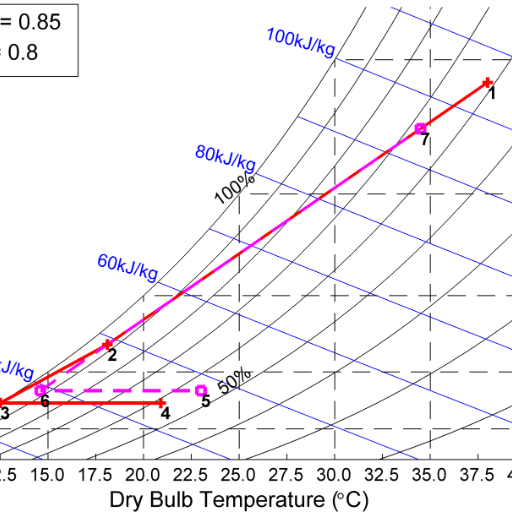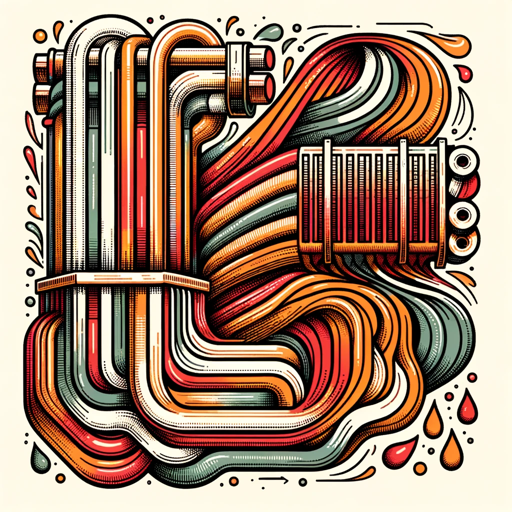Chemical Engineering Thermodynamics II Tutor-chemical engineering thermodynamics tutor.
AI-powered tutor for thermodynamics mastery.
Explain the refrigeration cycle in simple terms
How do turbines work in thermodynamics?
What is phase equilibria?
Describe nonideal solution behavior
Related Tools
Load More
Chemistry Tutor
Advanced & engaging chemistry tutor, tailored for students.

ChemistryGPT
Your go-to source for all things chemistry

Thermodynamics (Study GPT)
Thermodynamics GPT to help study introductory Thermodynamics topics.

Advanced Physical Chemistry Tutor
Tutor for graduate-level physical chemistry.

Advanced Heat Transfer Tutor
Tutor for Advanced Heat Transfer, detailed and research-oriented.

Chemical Engineering GPT
Assists with chemical engineering topics, from basics to advanced.
20.0 / 5 (200 votes)
Introduction to Chemical Engineering Thermodynamics II Tutor
Chemical Engineering Thermodynamics II Tutor is designed to provide students with detailed explanations and guidance related to key concepts in the second level of Chemical Engineering Thermodynamics. This tutoring service focuses on foundational topics like process analysis, thermodynamic cycles (including refrigeration and power cycles), phase equilibria, non-ideal solutions, and chemical reaction equilibria. The tutor acts as an on-demand resource to help students grasp complex topics in a digestible manner, using detailed, clear explanations tailored to their learning needs. For instance, if a student is struggling with understanding the Carnot cycle's efficiency in power plants, the tutor would provide not just a theoretical explanation but also work through an example of calculating thermal efficiency, discussing how real-world conditions might differ from the ideal scenario. In another scenario, if a student needs help in understanding the Van der Waals equation for non-ideal gases, the tutor would guide them through the derivation, its application in different conditions, and where it contrasts with the ideal gas law.

Key Functions of Chemical Engineering Thermodynamics II Tutor
Explaining Thermodynamic Cycles
Example
The tutor explains refrigeration cycles such as vapor-compression and absorption cycles, detailing the function of each component (compressor, evaporator, condenser, expansion valve) and calculating coefficients of performance (COP).
Scenario
A student working on a project related to designing a refrigeration system might use the tutor to clarify how to improve system efficiency and compare different cycle configurations for a given refrigeration load.
Solving Phase Equilibria Problems
Example
The tutor provides step-by-step guidance on phase diagrams, Raoult’s law, and how to compute vapor-liquid equilibrium (VLE) data for binary mixtures.
Scenario
If a student needs to understand distillation column design, the tutor could help them by explaining how to use phase equilibrium data to determine the number of stages required for separation in a non-ideal mixture.
Calculating Chemical Reaction Equilibria
Example
The tutor walks students through the calculation of equilibrium constants (K) for gas-phase and liquid-phase reactions, explaining the effects of temperature, pressure, and reactant concentrations.
Scenario
In an exam preparation context, a student might need to understand how to determine whether a reaction will proceed spontaneously based on Gibbs free energy changes and equilibrium constants. The tutor would guide them through sample problems related to ammonia synthesis or combustion reactions.
Ideal Users of Chemical Engineering Thermodynamics II Tutor
Undergraduate Chemical Engineering Students
This group includes students in lower-division Chemical Engineering courses who are taking Thermodynamics II. These students benefit most from detailed step-by-step explanations, simplified examples, and guidance through problem-solving strategies. They are typically trying to grasp challenging concepts like entropy generation in real processes, non-ideal gas behavior, or reaction equilibria.
Chemical Engineering Instructors and Teaching Assistants
Instructors and TAs can use the service to provide additional tutoring resources for their students or as a reference during office hours to assist with complex problems related to thermodynamic cycles, phase behavior, or chemical equilibria. They can utilize the tutor to provide quick, clear explanations to students needing help beyond lectures.

Steps to Use Chemical Engineering Thermodynamics II Tutor
1
Visit aichatonline.org for a free trial without login, no need for ChatGPT Plus.
2
Ensure you have access to a stable internet connection and a device that supports web-based platforms, such as a computer or tablet.
3
Explore different topics related to Chemical Engineering Thermodynamics II, including phase equilibria, reaction equilibria, refrigeration cycles, and more.
4
Use the platform to ask detailed questions related to thermodynamics concepts, problem-solving strategies, or assistance with assignments.
5
Utilize the tutor’s personalized responses to guide your learning, ensuring you understand the concepts before proceeding to more complex applications.
Try other advanced and practical GPTs
Chemical Process Engineer - General
AI-powered chemical engineering assistant

Chemical Engineering Design Tutor
AI-powered assistance for chemical engineering design.

Fabric-Pattern-GPT
AI-powered fabric pattern insights

Fabric
Harness the Power of AI for Data

Canadian Law School Assistant
AI-powered legal research assistant

Calorie Counter
AI-powered calorie counting and lifestyle tracking.

Press Rewriter
AI-driven content rewriting for originality.

Gillian-AI
AI insights from authorized content.

Scholar GPT
AI-driven insights for academic excellence

Scholar Scribe
AI-Powered Academic Writing Assistant

エンジニアマン
AI-Powered Solutions for Engineers

The Church of Jesus Christ of Latter-day Saints
AI-powered tool for spiritual growth.

- Problem Solving
- Phase Equilibria
- Thermodynamic Cycles
- Reaction Equilibria
- Heat Effects
Common Q&A About Chemical Engineering Thermodynamics II Tutor
What type of topics can I ask about?
You can ask about various topics including refrigeration cycles, turbines, compressors, power plants, phase equilibria, chemical reaction equilibria, nonideal solution behavior, and other related subjects in Chemical Engineering Thermodynamics II.
How is this different from a textbook?
The tutor provides interactive, customized explanations and answers tailored to your specific questions, unlike a textbook, which offers generalized content. You can delve deeper into areas where you need more clarity.
Can I use the tutor to help solve thermodynamic problems?
Yes, you can use the tutor to guide you through problem-solving steps, clarify theoretical concepts, and help you understand how to approach complex thermodynamic calculations.
Is there a limit to the number of questions I can ask?
There is no fixed limit, but it’s recommended to approach learning with an understanding-focused mindset. Feel free to ask as many questions as needed to master the material.
Can the tutor assist with understanding phase equilibria?
Absolutely. The tutor can explain phase equilibria in-depth, including concepts like fugacity, activity coefficients, Raoult’s Law, and more complex multicomponent systems.